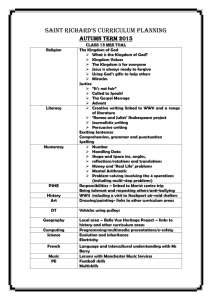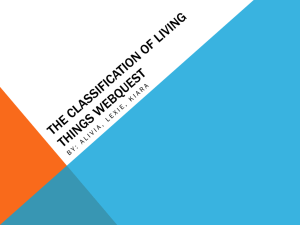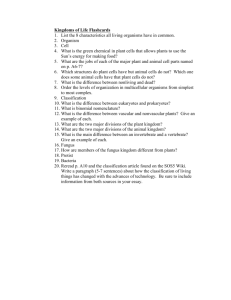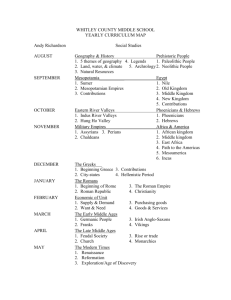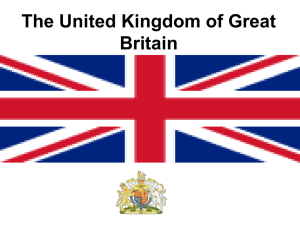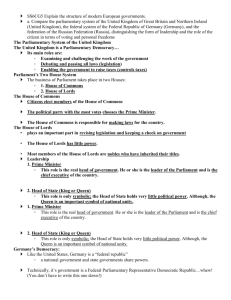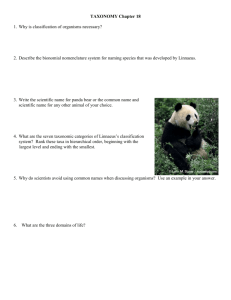Politics of the United Kingdom
advertisement
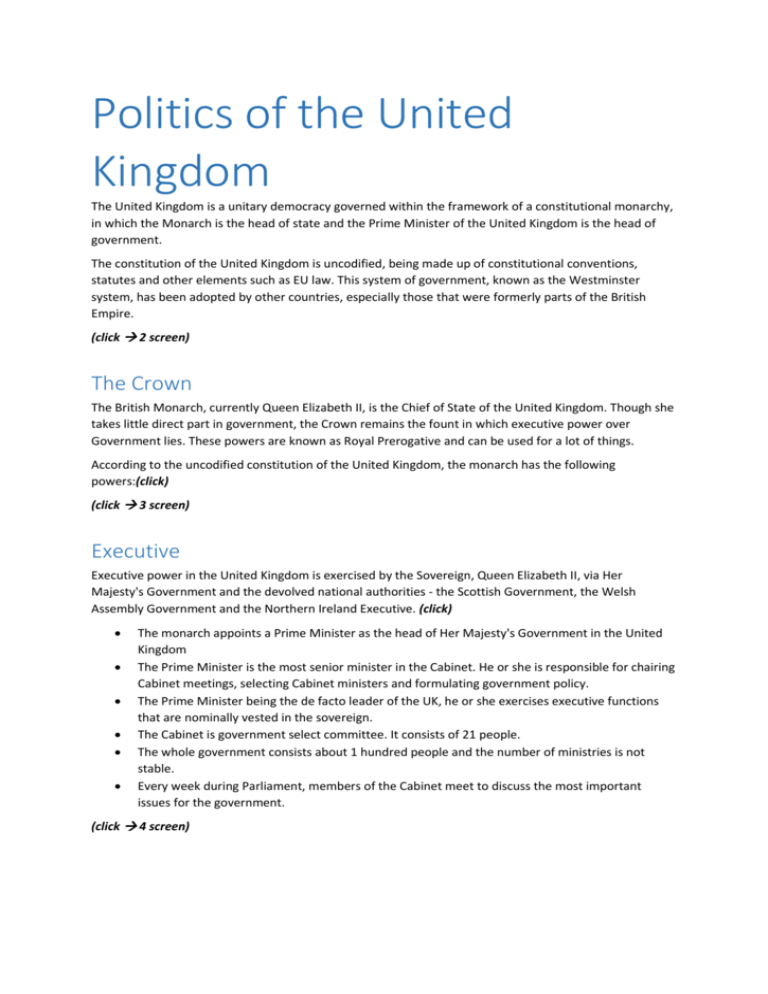
Politics of the United Kingdom The United Kingdom is a unitary democracy governed within the framework of a constitutional monarchy, in which the Monarch is the head of state and the Prime Minister of the United Kingdom is the head of government. The constitution of the United Kingdom is uncodified, being made up of constitutional conventions, statutes and other elements such as EU law. This system of government, known as the Westminster system, has been adopted by other countries, especially those that were formerly parts of the British Empire. (click 2 screen) The Crown The British Monarch, currently Queen Elizabeth II, is the Chief of State of the United Kingdom. Though she takes little direct part in government, the Crown remains the fount in which executive power over Government lies. These powers are known as Royal Prerogative and can be used for a lot of things. According to the uncodified constitution of the United Kingdom, the monarch has the following powers:(click) (click 3 screen) Executive Executive power in the United Kingdom is exercised by the Sovereign, Queen Elizabeth II, via Her Majesty's Government and the devolved national authorities - the Scottish Government, the Welsh Assembly Government and the Northern Ireland Executive. (click) The monarch appoints a Prime Minister as the head of Her Majesty's Government in the United Kingdom The Prime Minister is the most senior minister in the Cabinet. He or she is responsible for chairing Cabinet meetings, selecting Cabinet ministers and formulating government policy. The Prime Minister being the de facto leader of the UK, he or she exercises executive functions that are nominally vested in the sovereign. The Cabinet is government select committee. It consists of 21 people. The whole government consists about 1 hundred people and the number of ministries is not stable. Every week during Parliament, members of the Cabinet meet to discuss the most important issues for the government. (click 4 screen) Legislatures The UK Parliament is the supreme legislative body in the United Kingdom and Government is drawn from and answerable to it. Parliament is bicameral, consisting of the House of Commons and the House of Lords. (click) The House of commons consists of approximately 650 members, each one from different constituencies. The head of House of commons is so. Speaker, he or she manages the meetings and punish members that break the rules. (click) The House of Lords consists of approximately 1150 members. The House of Lords currently acts to review legislation initiated by the House of Commons, with the power to propose amendments, and can exercise a suspense veto. The House of Lords was replaced as the final court of appeal on civil cases within the United Kingdom on 1 October 2009, by the Supreme Court of the United Kingdom. (click 5 screen) Judiciary The judiciary of the United Kingdom are the separate judiciaries of the three legal systems in England and Wales, Northern Ireland and Scotland. (click) Justices of the Supreme Court The Supreme Court is the highest in the whole of the United Kingdom for civil matters, and for criminal matters from the United Kingdom jurisdictions of England and Wales and Northern Ireland. Justices are appointed by the Queen on the advice of the Prime Minister. The Supreme Court is headed by the President and Deputy President of the Supreme Court and is composed of a further ten Justices of the Supreme Court. (click) The Justices do not wear any gowns or wigs in court, but on ceremonial occasions they wear black damask gowns with gold lace without a wig. (click 6 screen – The End)
